Language is far more than a tool for communication—it is a critical component of identity and culture. The words we use, the way we say them, and the expressions unique to our social circles reveal much about who we are and where we come from. Dialects, regional accents, and slang terms provide a cultural fingerprint, tying individuals to specific communities, locations, and histories. This intricate relationship between language and identity highlights how dialects and slang not only reflect personal and group identities but also shape the social dynamics within communities.
1. The Role of Dialects in Cultural Identity
Dialects are regional or social variations of a language, marked by differences in vocabulary, grammar, and pronunciation. For speakers, dialects serve as markers of cultural identity, often associated with particular regions, social classes, or ethnic groups. For example, someone from the southern United States may speak with a different cadence and use phrases distinct from someone raised in the Northeast. These variations signal not only geographic origins but also connect speakers to a larger cultural history.
Dialects can reinforce a sense of belonging within a community, acting as a subtle yet powerful indicator of shared experiences and values. Take, for instance, the way dialects operate in the United Kingdom. A Liverpudlian’s speech is instantly distinguishable from someone hailing from London, and these differences contribute to local pride. People often cling to their dialects as a way of preserving a sense of self that is closely tied to their regional identity.
Moreover, dialects often serve as a symbol of resistance against cultural homogenization. In many regions, people maintain their local speech patterns even when pressured to conform to more “standard” forms of the language, such as received pronunciation in the UK or “General American” in the U.S. By continuing to speak in dialect, individuals assert their unique identity in the face of external pressures to conform.
2. The Connection Between Slang and Social Identity
While dialects are often tied to geography, slang tends to be a social marker, revealing the inner workings of smaller, more specific communities. Slang can be thought of as the informal, often playful aspect of language that evolves rapidly and adapts to the needs of particular social groups. For example, teenagers often create and use slang terms that help establish their place within their peer group, differentiating themselves from older generations.
Slang not only helps individuals navigate social interactions but also signals a form of insider knowledge. Using the right slang in the right context can immediately build rapport and a sense of shared identity. Among groups such as skaters, gamers, or online communities, specific slang terms are unique to their interests and activities. This fosters an “in-group” feeling, where those who use the same terminology feel connected through shared experiences and cultural touchpoints.
In urban environments, for example, slang can emerge from multicultural influences, with words borrowed from various languages and dialects coming together to create a vibrant linguistic tapestry. In cities like New York, London, or Los Angeles, the melting pot of cultures leads to a dynamic exchange of slang terms that reflect the diverse identities of these populations. This blending of language is a testament to how communication within communities is fluid and ever-changing, allowing slang to remain fresh and relevant.
3. How Language Shapes Group Identity
Language, whether through dialect or slang, acts as a social glue that binds communities together. When individuals speak in a similar way, they reinforce their membership within a group, creating a sense of unity and belonging. This shared language also helps to establish boundaries between “us” and “them.” Someone who doesn’t understand the slang or dialect of a particular group is often seen as an outsider.
This dynamic is especially evident in online communities, where unique forms of language have emerged. Platforms like Reddit, Twitter, and TikTok have birthed their own dialects and slang, much of which revolves around memes, internet culture, and shorthand expressions. For example, terms like “FOMO” (fear of missing out) or “shook” (surprised or overwhelmed) reflect how digital spaces generate new language, helping people navigate and express their experiences in a rapidly evolving social landscape.
The use of specific slang or dialect can also signify allegiance to a subculture or counterculture. For instance, hip-hop culture has a rich tradition of using slang to express rebellion, creativity, and identity. Terms originating in African American Vernacular English (AAVE) have entered mainstream usage, but they remain closely tied to the history and culture of the communities that created them. In this way, slang can become a form of cultural capital, signifying authenticity and connection to a particular identity or social group.
4. Language, Power, and Exclusion
While language has the power to unite, it can also be used as a tool of exclusion. Dialects and slang, when viewed as “incorrect” or “inferior,” often become stigmatized. People who speak in a regional dialect or use certain slang may be judged as uneducated or less capable, reinforcing social hierarchies. This can lead to discrimination and prejudice, particularly for marginalized communities whose dialects or forms of slang are not considered “standard” or acceptable.
For instance, African American Vernacular English (AAVE), also known as Ebonics, has historically been viewed as a sign of low education or improper speech in the United States. However, AAVE is a legitimate, rule-governed dialect with its own grammar and syntax. The stigmatization of AAVE reflects broader societal inequalities, where the dominant culture devalues the language and identities of minority groups. By dismissing AAVE or other non-standard dialects, society marginalizes the speakers, reinforcing systemic discrimination.
Slang also carries connotations of exclusion, particularly when it is appropriated from minority groups. The widespread use of terms originating from Black or LGBTQ+ communities by mainstream culture can sometimes strip those words of their original meaning and significance. In these cases, what was once a powerful marker of identity becomes diluted or commodified, often without giving credit to the communities that originated the language.
5. The Future of Dialects and Slang in a Globalized World
In today’s interconnected world, language is evolving faster than ever. Technology, social media, and the rise of global communication mean that dialects and slang can spread rapidly across regions and cultures. While this can lead to the blending of linguistic features and the emergence of new global slang, it also raises questions about the preservation of traditional dialects.
Globalization can sometimes threaten the survival of smaller dialects or languages as speakers adopt more dominant languages for practical reasons. However, there is also a growing movement to preserve and celebrate linguistic diversity. Many regions and communities are actively working to revitalize their dialects, ensuring that they are passed down to future generations.
Slang, too, continues to evolve at a rapid pace, often driven by youth culture and online communities. As language remains a fluid, adaptable tool, new forms of expression will continue to emerge, reflecting the shifting identities and values of the communities that create them.





















